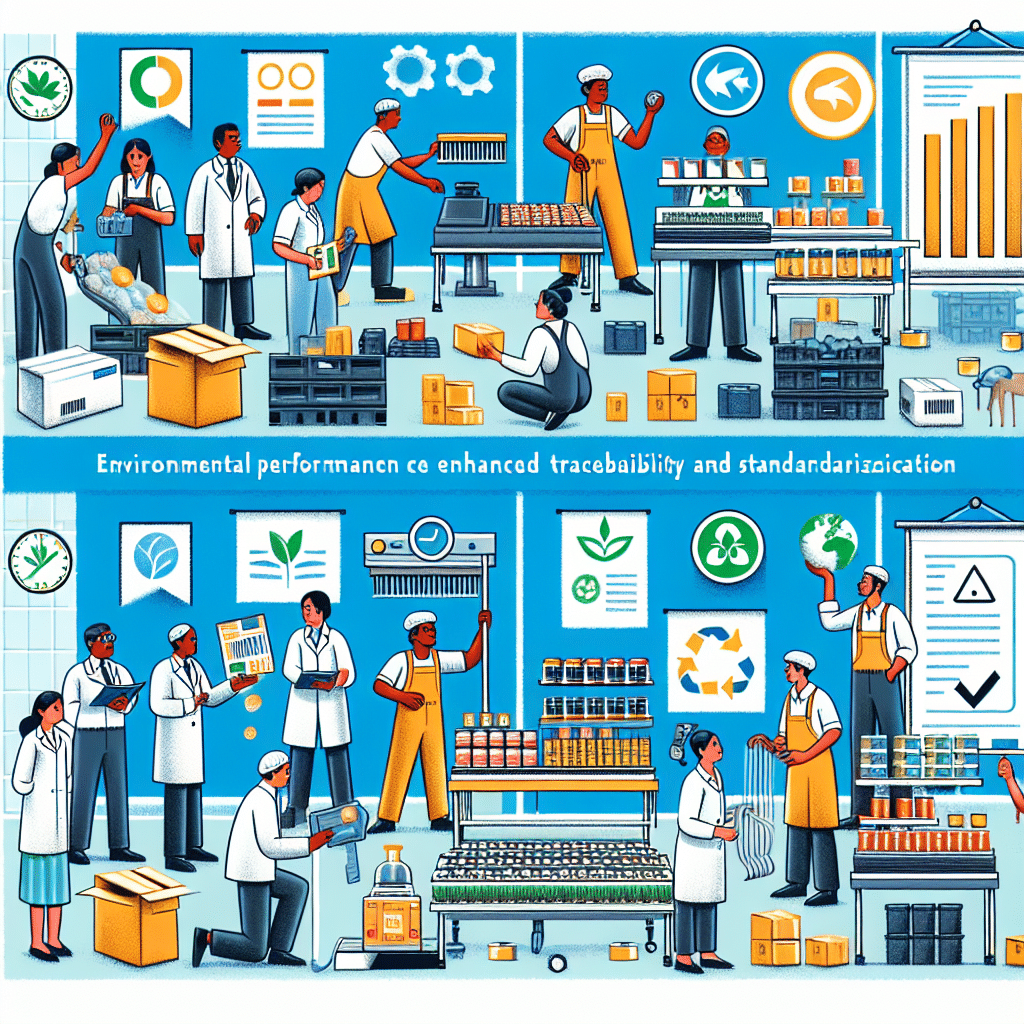Enhancing Environmental Performance in the Food Industry through Traceability and Standardization
-
Table of Contents
- Traceability and Standardization: Key to Eco-Friendly Food Industry Practices
- The Importance of Environmental Performance in the Food Industry
- Traceability: A Tool for Transparency and Accountability
- Standardization: Establishing Eco-Friendly Benchmarks
- Integrating Traceability and Standardization
- Case Studies and Statistics
- Challenges and Solutions
- Conclusion: Embracing a Sustainable Future
- ETprotein: Your Partner for Sustainable Protein Solutions
Traceability and Standardization: Key to Eco-Friendly Food Industry Practices

The food industry is a significant player in the global economy, but it also has a substantial environmental footprint. From farm to fork, the processes involved in food production, distribution, and consumption can lead to resource depletion, pollution, and waste. However, by enhancing environmental performance through traceability and standardization, the food industry can reduce its ecological impact while also meeting consumer demand for sustainable practices.
The Importance of Environmental Performance in the Food Industry
Environmental performance in the food industry is critical for several reasons. It ensures the responsible use of natural resources, minimizes waste and emissions, and promotes biodiversity. Moreover, consumers are increasingly aware of the environmental impact of their food choices and are demanding more sustainable options. Companies that prioritize environmental performance can gain a competitive edge, improve their brand image, and ensure long-term sustainability.
Traceability: A Tool for Transparency and Accountability
Traceability in the food industry refers to the ability to track the production, processing, and distribution of food products. It is essential for ensuring food safety, but it also plays a crucial role in enhancing environmental performance.
- Supply Chain Visibility: Traceability provides visibility into the supply chain, allowing companies to identify and address environmental issues at each stage of production.
- Resource Management: By tracking inputs and outputs, businesses can optimize resource use and reduce waste.
- Consumer Trust: Traceable products offer consumers assurance that the food they purchase is produced sustainably.
Standardization: Establishing Eco-Friendly Benchmarks
Standardization involves creating and implementing guidelines and criteria for processes and products. In the food industry, standardization can lead to improved environmental performance in several ways:
- Consistency: Standards ensure that environmental best practices are consistently applied across the industry.
- Efficiency: Standardized processes can lead to more efficient use of energy and resources.
- Market Access: Compliance with international environmental standards can open up new markets for food producers.
Integrating Traceability and Standardization
Integrating traceability and standardization can lead to significant environmental benefits. For example, the use of standardized traceability systems can help companies monitor their carbon footprint, manage water usage, and ensure sustainable sourcing of raw materials.
Case Studies and Statistics
Several case studies highlight the success of integrating traceability and standardization in the food industry. For instance, a study by the Food and Agriculture Organization (FAO) showed that traceability systems helped reduce water usage by up to 30% in certain agricultural practices. Additionally, the Global Food Safety Initiative (GFSI) benchmarks food safety standards that also promote sustainability, leading to a reported 20% reduction in energy consumption for companies that comply with these standards.
Challenges and Solutions
While the benefits are clear, implementing traceability and standardization can be challenging. Issues such as the cost of technology, resistance to change, and the complexity of global supply chains can hinder progress. However, solutions such as government incentives, industry collaboration, and consumer education can help overcome these barriers.
Conclusion: Embracing a Sustainable Future
In conclusion, enhancing environmental performance in the food industry through traceability and standardization is not only beneficial for the planet but also for businesses and consumers. By adopting these practices, the food industry can contribute to a more sustainable future while meeting the growing demand for eco-friendly products.
ETprotein: Your Partner for Sustainable Protein Solutions
In line with the commitment to environmental performance, ETprotein offers a range of sustainable protein products that align with the values of traceability and standardization. Their organic bulk vegan proteins and L-(+)-Ergothioneine are produced with the highest quality standards, ensuring that your food products are not only nutritious but also environmentally responsible.
About ETprotein:
ETprotein, a reputable protein and L-(+)-Ergothioneine (EGT) Chinese factory manufacturer and supplier, is renowned for producing, stocking, exporting, and delivering the highest quality organic bulk vegan proteins and L-(+)-Ergothioneine. They include Organic rice protein, clear rice protein, pea protein, clear pea protein, watermelon seed protein, pumpkin seed protein, sunflower seed protein, mung bean protein, peanut protein, and L-(+)-Ergothioneine EGT Pharmaceutical grade, L-(+)-Ergothioneine EGT food grade, L-(+)-Ergothioneine EGT cosmetic grade, L-(+)-Ergothioneine EGT reference grade and L-(+)-Ergothioneine EGT standard. Their offerings, characterized by a neutral taste, non-GMO, allergen-free attributes, with L-(+)-Ergothioneine purity over 98%, 99%, cater to a diverse range of industries. They serve nutraceutical, pharmaceutical, cosmeceutical, veterinary, as well as food and beverage finished product distributors, traders, and manufacturers across Europe, USA, Canada, Australia, Thailand, Japan, Korea, Brazil, and Chile, among others.
ETprotein specialization includes exporting and delivering tailor-made protein powder and finished nutritional supplements. Their extensive product range covers sectors like Food and Beverage, Sports Nutrition, Weight Management, Dietary Supplements, Health and Wellness Products, and Infant Formula, ensuring comprehensive solutions to meet all your protein needs.
As a trusted company by leading global food and beverage brands and Fortune 500 companies, ETprotein reinforces China’s reputation in the global arena. For more information or to sample their products, please contact them and email sales(at)ETprotein.com today.












